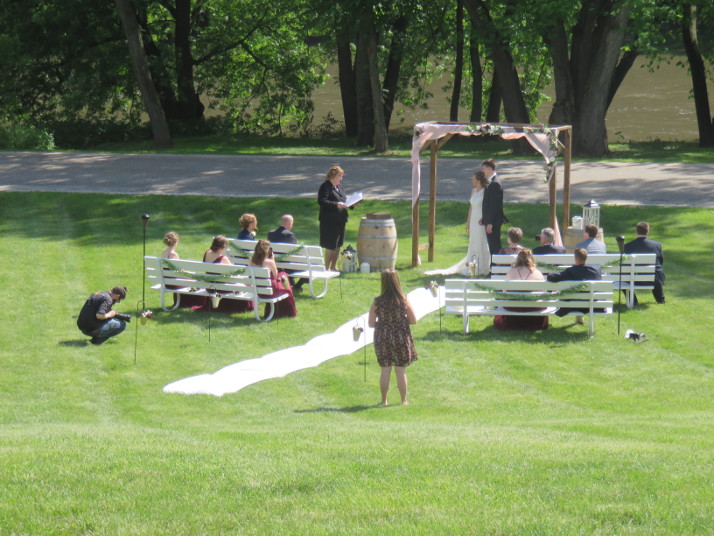Advantages of Intimate Wedding Ceremonies
The advantages of intimate wedding ceremonies are significant. With a smaller guest list options exist for all aspects of the ceremony. You might be opting for a smaller number of ceremony guests due to safety and health restrictions, or just because the idea appeals to you.
Either way, consider some of these options and advantages of intimate wedding ceremonies:
- Choose a circle or semi-circle ceremony space layout. These connect you to your guests in a visual and emotional way.
- Opt to forego a wedding party, simplifying planning and expenses and keeping the focus on you as a couple during the ceremony.
- Invite guests to participate: identify someone to hold your bouquet and someone else to hold the rings.
- Leverage skills and interests of your guests as readers, musicians or DJ for the ceremony, and even as photographer if you’re lucky enough to have a talented family member or friend.
- Include spontaneous moments. Perhaps you want to speak to your families and express appreciation for their assistance and support. Or near the end of the ceremony you can invite them to voice their wishes for you going forward.
It’s not uncommon for couples to express concern about being the center of attention with all eyes on them during the ceremony. But smaller guest lists offer less of a “show” feeling to the ceremony and offer you less stress and more connection with your guests. Your ceremony can also be more intimate, sharing inside stories that family and close friends will understand. You can be more open and vulnerable to each other in front of a small group of close family and friends.
While large ceremonies have their own beauty, the advantages of intimate wedding ceremonies make them a great option for many couples. Whether it is to keep you and your guests safe in the time of COVID-19, or to best fit your personal style, make sure you discuss an intimate ceremony option with your wedding celebrant when planning your wedding day.

